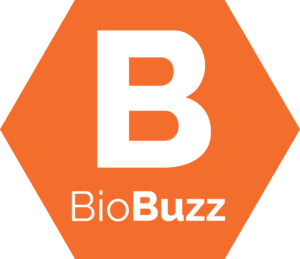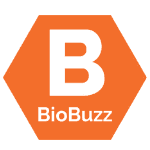
5 Questions With Jaime Ownby, Federal Government Market Development Manager at MilliporeSigma
“5 Questions With…” is a weekly BioBuzz series where we reach out to interesting people to share a little about themselves, their work, and maybe something completely unrelated. This week we welcome Jaime Ownby, Federal Government Market Development Manager at MilliporeSigma.
1) Please introduce yourself to our audience by looking back at your education, training, and career.
I am a Teacher turned Research Sales Rep turned Market Development Manager. I received my degree in Chemistry from a fantastic small private school, Trinity Washington University, in DC. I had the incredible opportunity to intern at the National Eye Institute, NIH while in college. My bioinformatic analysis contributed to a paper that went to publication.
After graduation, I became a Chemistry Teacher, at the same high school I graduated from actually. During 4 of my 8 years of teaching, I held a second job teaching virtual lessons to students who were ill through our county’s Home and Hospital program. Also while teaching, I co-authored the county’s Chemistry curricula. A few months before the pandemic, I changed careers and became a field sales rep at the NIH for the life science company, MilliporeSigma. I earned Market Maker of the Year my first year in the role (amid moving to a new state and having two little ones at home). I was promoted to the Market Development Manager on MilliporeSigma’s federal government team, which is my role now.
2) Tell us more about your day-to-day in your current role at MilliporeSigma. What do you enjoy most about the work you do?
As a market development manager, I have the opportunity to reshape how our life science organization does business with the federal government. I spend time engaging in strategic and tactical initiatives to bring our company’s capabilities to federal government agencies, in order to support their missions and research goals. Our customers include researchers at the NIH, FDA, CDC, Army, Navy, USDA, National Laboratories, and many more!
While there are members on my team who work with researchers directly by sharing new innovative product information, technical expertise, and quotes, I build relationships with government stakeholders; mostly contracting officers and program managers. A typical day may include attending an agency’s vendor outreach session, connecting with dealers about partnership opportunities, and submitting proposals in response to agency procurement forecasts and ‘bids’ (contracting opportunities).
Doing business with the federal government can be perplexing, but I enjoy being challenged and appreciate the opportunity to provide my company a renewed understanding of how best to meet the federal government’s procurement needs. I also appreciate the autonomy of my role and the ability to work from home.
3) It’s amazing to see how you’ve made the jump from being a teacher to working in the life sciences industry! What advice do you have for folks who might also be interested in making a major career jump, particularly those who are hesitant or don’t know where to start?
I’d recommend starting out by taking career personality tests—there’s a ton of free ones online. Then spend time reflecting on your skills and strengths, both those that are utilized and underutilized by your current career. Write down what you want and don’t want in a job. Next, one of the most helpful things I did was connect with people who work in the industries or roles you’re interested in—friends, friend’s relatives, neighbors. I asked them to explain the variations of the roles in their field; what the exact title is (as it’s hard to research if a job is a good fit for you if you don’t know its title), what a day in their job looks like, what they love and don’t love about their jobs, etc. You can search for “day in the life” YouTube videos too.
Next, take every career that was suggested to you from the personality tests, from friends, and ones you’ve been curious about and google like crazy! I recommend keeping a notebook to help visually see and balance the risk vs reward for each career possibility. Some career changes require additional education, longer commute times, a potential move, different work hours, pay cuts (maybe initially), etc. Then weigh it against what you’d gain in that career over your current one.
There’s a reason a person is looking for a career change, but It’s important to keep in mind that the grass isn’t always greener and every job has some aspects that you may not absolutely love. If you find the risk is worth it, then take the jump! Send the applications! Be hopeful and don’t give up. Don’t forget to tailor your applications and cover letters for each job. Also, be sure to highlight exactly how all your past experiences and training, while untraditional for most candidates, have prepared you for the role.
4) What’s a new skill that you’re hoping to learn in 2022, and how are you planning to get there?
While this isn’t career-related, I’d like to increase my tropical gardening skills. I recently moved to south Florida from Maryland for my husband’s job (I work entirely remote in my “new” role). When we bought our house, we inherited a mature avocado and mango tree and a young lime/orange hybrid citrus tree. We feel like we hit the jackpot! We’ve added banana and pineapple plants, but I’d like to add more plants—perhaps guava. Since you can find a Facebook group for anything these days, I’ve joined a great South Florida Edible Gardening community on there and have connected with a local nursery, Tree Amigos, who is a beyond valuable resource!
5) Do you have a mentor or someone in your life who has made a deep impact? Tell us about them!
My high school chemistry teacher. He challenged my ways of thinking and learning. As a curious person, I really enjoyed his class because whenever I asked questions that went beyond the curriculum, he was always able to answer them. His class helped me grow the most academically and gave me a window into how grand and vast the world of science is. I left his class wanting to learn so much more, which is why I went on to study chemistry instead of education and ultimately why I’m in the science field now.
- About the Author
- Latest Posts
BioBuzz is a community led, experience focused, biotech and life sciences media and events company. BioBuzz highlights regional breaking news, industry professionals, jobs, events, and resources for business and career growth. Their weekly newsletter is subscribed to by thousands in the BioHealth Capital Region and Greater Philadelphia as the go-to for industry updates.




